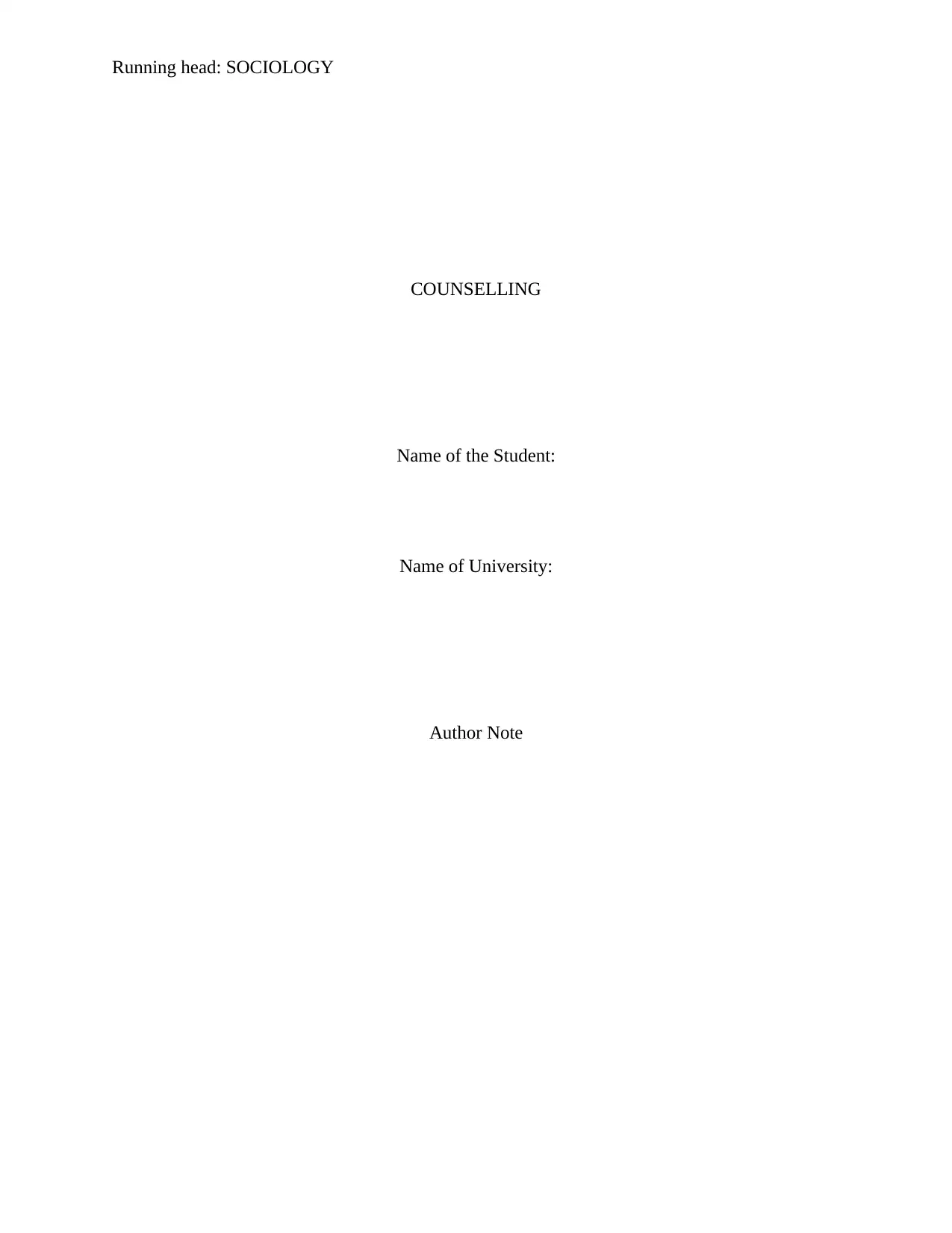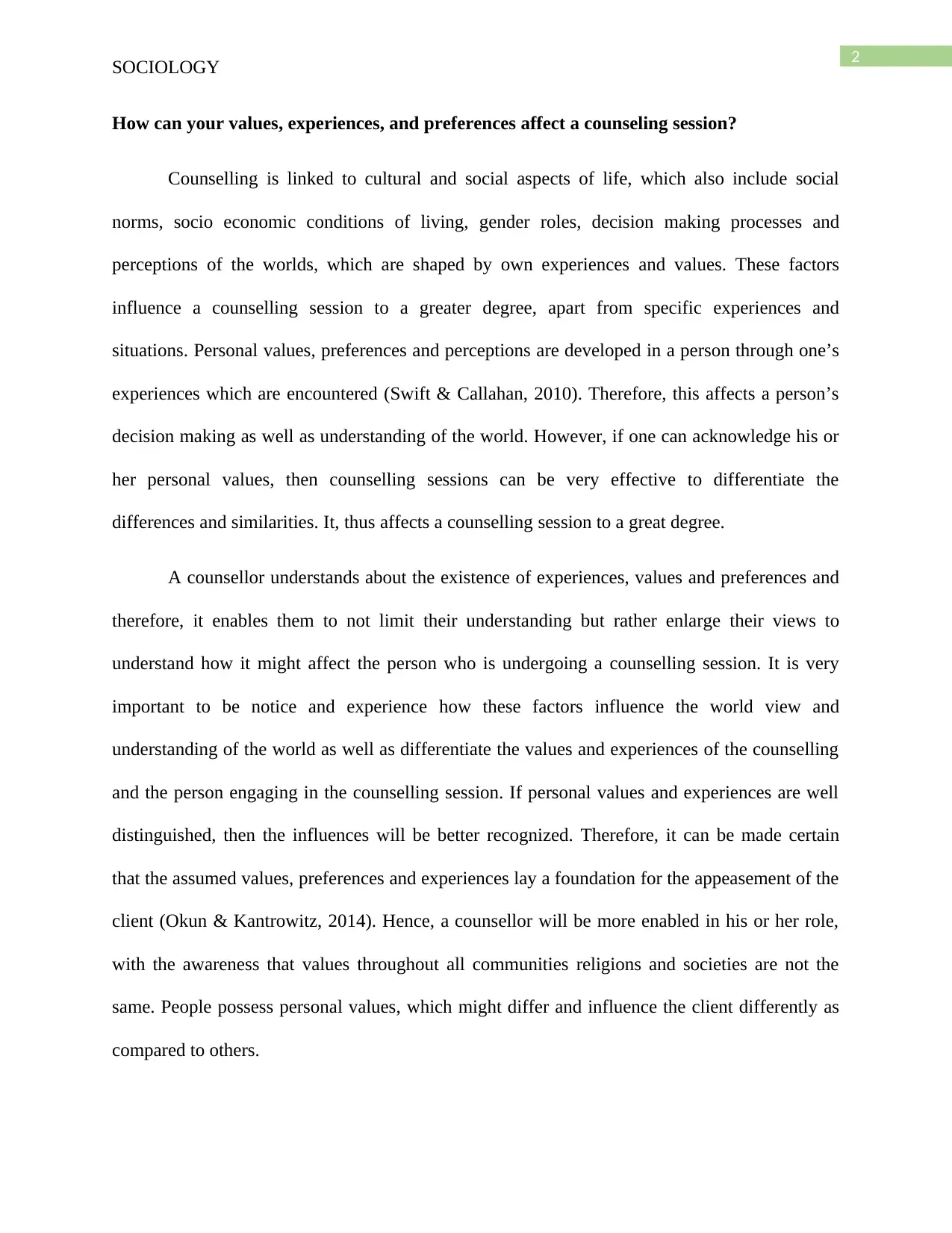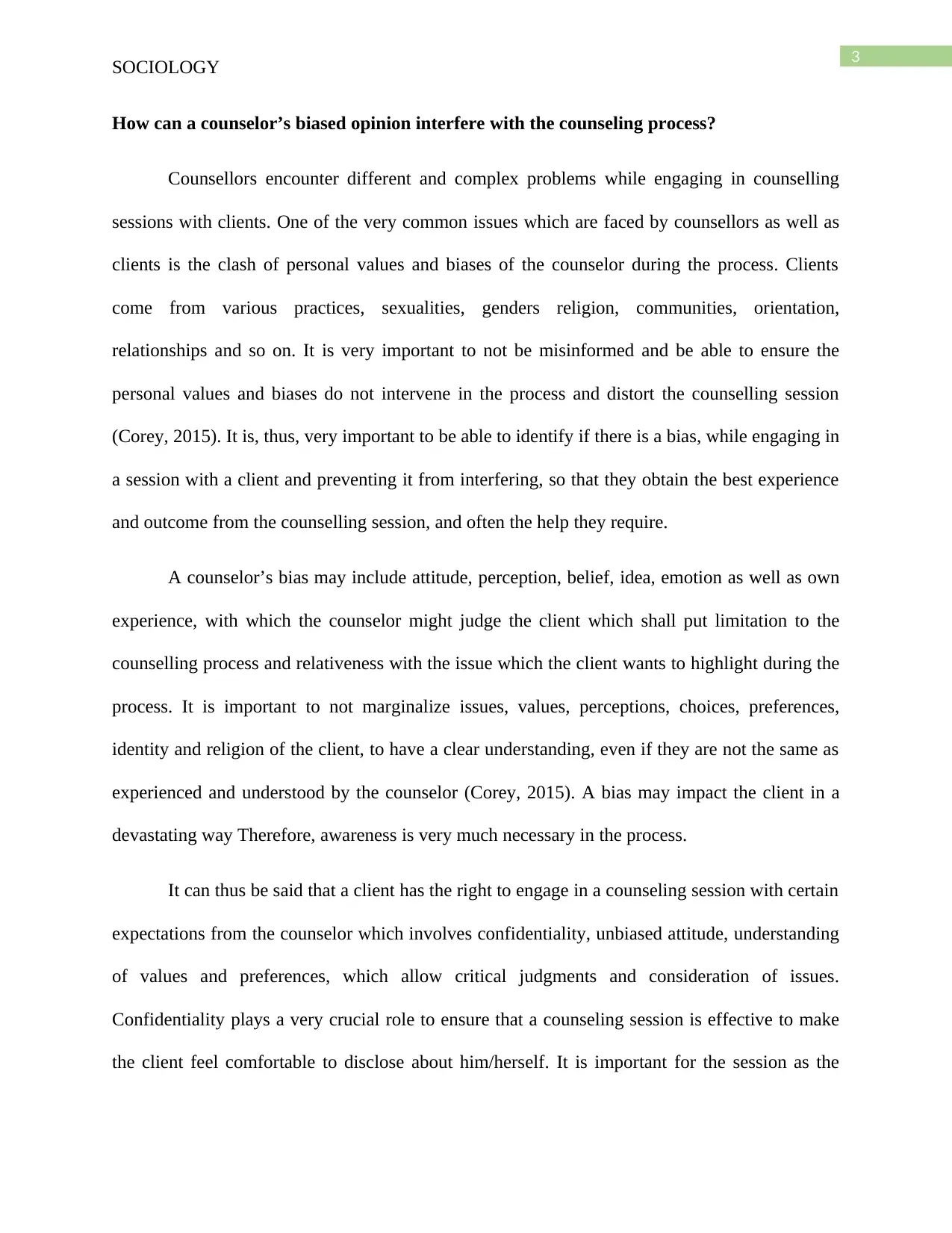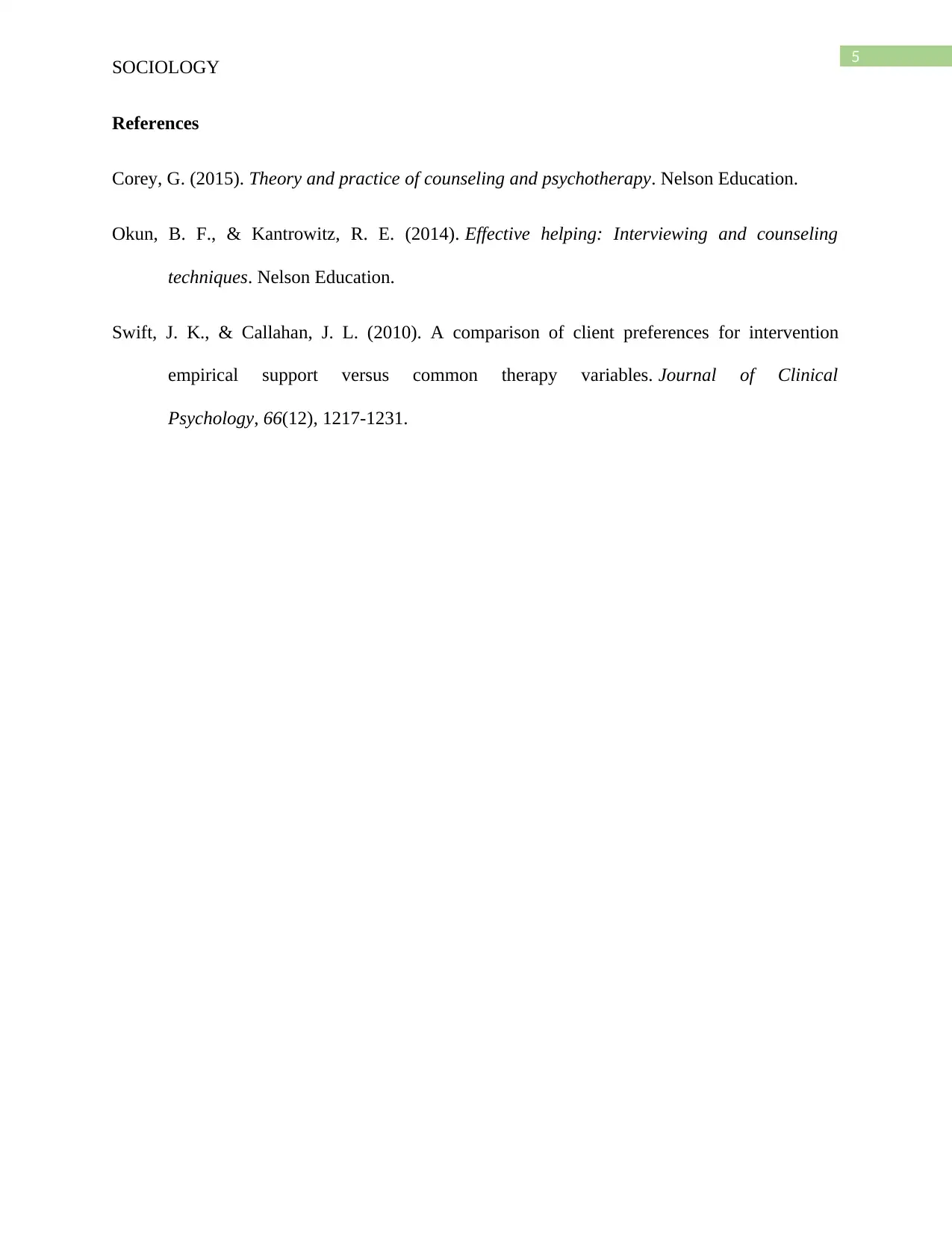The Impact of Values and Bias in Sociology Counselling Sessions
VerifiedAdded on 2022/09/25
|5
|837
|22
Essay
AI Summary
This essay delves into the intricate relationship between personal values, experiences, and preferences, and their profound influence on counselling sessions within the field of sociology. It highlights how these factors, shaped by individual backgrounds and societal norms, can significantly impact a counsellor's understanding and approach to clients. The essay emphasizes the importance of self-awareness for counsellors, enabling them to recognize and differentiate their own values from those of their clients to ensure effective and unbiased support. Furthermore, it explores the potential for counsellor bias to interfere with the counselling process, particularly when personal beliefs clash with client perspectives, stressing the need for counsellors to maintain an open, non-judgmental stance to provide the best possible care and outcomes. The essay concludes by underscoring the client's right to confidentiality, unbiased attitudes, and a deep understanding of their unique values and preferences to facilitate a successful and supportive counselling experience.
1 out of 5











![[object Object]](/_next/static/media/star-bottom.7253800d.svg)